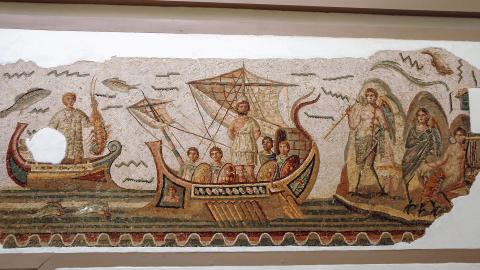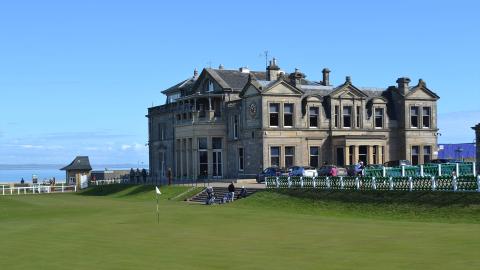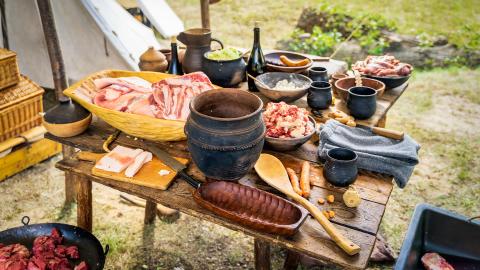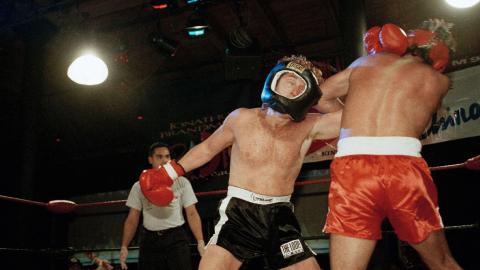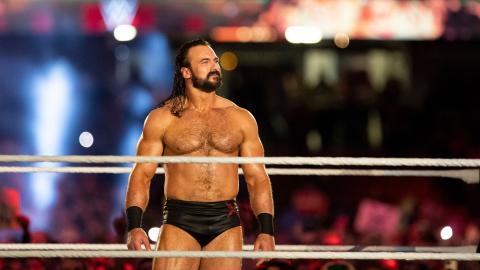June 8, 1990 is a date engraved in the memory of every Cameroonian football fan; it is the day the Indomitable Lions shocked the world by defeating reigning champions Argentina in their opening game at Italia 90.
It was a game that changed perceptions of African football. Stereotypes steeped in post-colonial attitudes had ensured that, up to then, it was seen as naïve, disorganised – not to be taken seriously.
After the Lions’ 1-0 victory there could no doubt of the team’s quality. As Maradona admitted, “I cannot argue, and I cannot make excuses. If Cameroon won it was because they were the best side.”
The only goal of the game came from a huge climbing header by Omam-Biyik, who rose to meet a deflected ball. It was a header that goalkeeper Nery Pumpido should have saved, but he didn’t, and the ball ended up in the back of the net, sending the 73,000 fans in the San Siro into meltdown.
Going into the game Argentina were clear favourites. After winning the World Cup in such style in 1986 it was taken for granted that no one could stop them again, let alone a Cameroon side performing at only their second World Cup. They were captained by Diego Maradona, the greatest player of the day, perhaps of all time. They seemed ready for anyone.
In contrast, preparations for the tournament hadn’t gone smoothly for Cameroon, who had been forced to drop their best player, goalkeeper Joseph-Antoine, after he told a journalist Cameroon had “no chance of coping with Argentina, or any other team” and that they “will go out in the first round without much glory”.
Their odds of 500-1 reflected the reputation of their virtually unknown manager Valeri Nepomniachi, last seen managing in the Russian third division. He was unable to speak French, so his team talks had to be translated by a Russian embassy driver.
"I didn’t think my legs were up to it, to be honest."
There was also the inclusion of Roger Milla. The 1976 African Footballer of the Year was a great player in his day, but now, in 1990 and at the age of 38, he seemed a desperate choice to lead the line. “I didn’t think my legs were up to it, to be honest,” Milla admitted years later, along with the fact that he was included in the squad only because the President of Cameroon, Paul Biya, insisted upon it.
But what a decision it was.
After the result against Argentina, Cameroon proved it was no fluke, advancing to the next stage, where they beat Colombia. Here Milla grabbed two goals to go with two others he scored against Romania in the group stages. In doing so, he became the oldest player to score at a World Cup, a record he broke again in 1994 at the age of 42.
Cameroon had made it all the way to the quarter-finals, the furthest any African team had ever got at a World Cup. Here they were unfortunate to lose to England, but only in extra time, having fought back after going behind.
According to the stats, Italia 90 wasn’t a great tournament – fewest goals per game; most red cards; defensive tactics leading to record extra times – but don’t tell Cameroon fans that.
The Indomitable Lions were the darlings of the tournament, picking up new fans at every turn. As Milla said, “The whole of the Third World supported Cameroon,” but it wasn’t just them; everyone else had fallen for Milla’s joyous spontaneous dance at the corner flag, perhaps the most iconic image of the tournament – sorry, Luciano Pavarotti.
“Milla set a whole continent on fire with his goals and his dances. It’s a fire that still burns today,” reflects Samuel Eto’o, another Cameroonian great. “We Africans love stories in which the impossible becomes true. And we like to make them a little more heroic in the telling than they really were.” The team had tapped into a cultural legacy and provided inspiration for future generations.
The Cameroon side of 1990 set the subsequent standard for African football teams, and while their quarter-final fun has since been matched wonderfully by Senegal in 2002 and Ghana in 2010, it was they who made it all possible.


